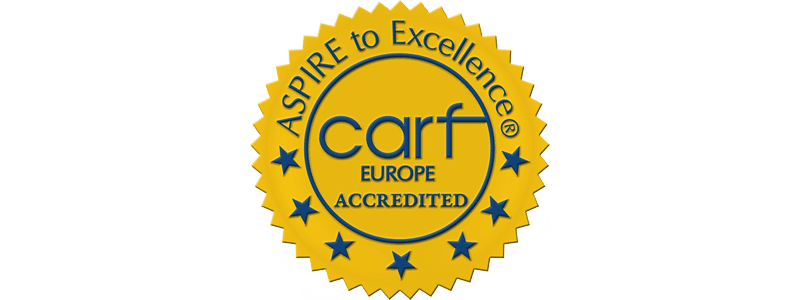As part of our treatment curriculum at New Directions for Women, we utilize Seeking Safety to help women in the addiction recovery process. The following will provide you with more information on this foundational curriculum used at New Directions for Women.
Seeking Safety is a type of therapy that is used to help people obtain a sense of safety from both trauma/PTSD and chemical dependency. At New Directions for Women we conduct Seeking Safety treatment in both a gender-specific group and individual format which includes in-patient and outpatient and residential settings. Seeking Safety was founded by Lisa Najavits, Ph.D. in 1992 in combination with grant funding from the National Institute on Drug Abuse.
Seeking Safety treatment covers a number of topics which include:
• an introduction to treatment
• safety
• taking back your power
• detaching from emotional pain
• when substances control you
• asking for help
• taking good care of yourself
• compassion
• red and green flags
• honesty
• recovery thinking
• integrating the split self
• commitment
• creating meaning
• community resources
• setting boundaries in relationships
• discovery
• getting others to support your recovery
• coping with triggers
• respecting your time
• healthy relationships
• self-nurturing
• healing from anger
• the life choices game
• termination: the ending of treatment
There are five principles to Seeking Safety that all therapists adhere to. The first is using safety as the primary goal for this type of therapy. The goal is for patients to successfully obtain safety in all of their relationships, thinking, behavior, and emotions. The second principle of Seeking Safety is integrated treatment. This is where patients work on any post traumatic stress disorders and chemical dependency concurrently. The third principle for patients is to focus on ideals so that they can counteract their loss in ideals in both PTSD and chemical dependency. The fourth principle is the four content areas of Seeking Safety which include: cognitive, behavioral, interpersonal, and discussions on case management. The fifth principle is the attention to clinician processes, where clinicians help patients work on countertransference, self-care and any other issues the patients might face.
By utilizing Seeking Safety in our curriculum here at New Directions for Women we are allowing our patients to actively address their trauma while in treatment for chemical dependency. The use of Seeking Safety has seen favored results by giving patients instruction on healthy coping skills while allowing the patient to replace unhealthy actions that may have previously occurred in their lifetime. In conjunction with Seeking Safety, we have Psychodrama groups which are extremely effective in addressing trauma. Psychodrama is a dramatic role-play and action method in a group setting, which allows for investigation and insight into the past. Real-life memories are acted out in the present so that patients can evaluate the scenario, their response to it, their behaviors because of it, and fully understand the situation.
At New Directions for Women we have a multidisciplinary Treatment Team that is comprised of Master’s Level Licensed Therapists and fully Certified Addiction Counselors who are passionate about providing comprehensive, individualized residential rehab and intensive outpatient addiction treatment.
New Directions for Women is a treatment facility located in California that offers help to women, pregnant women, women with children and families who desire a similar result. Our caring admissions counselors are available 24/7 to take your call and answer any questions you may have on getting help. Reach us by phone at 800-93-WOMEN. We can help. Stay in the loop with New Directions for Women by connecting with us on Twitter, Facebook, or LinkedIn.












